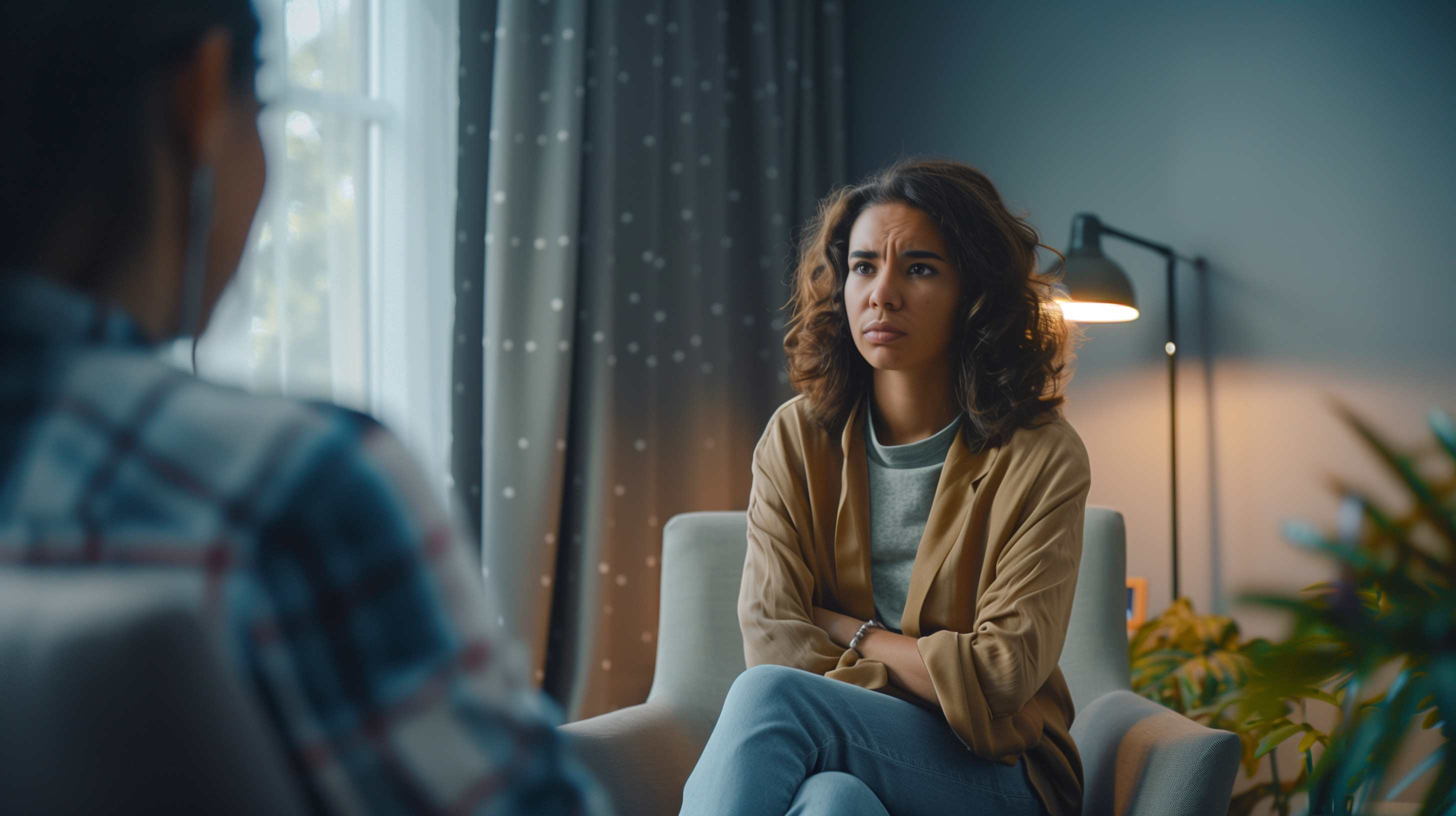We probably all have at once time or another been told we are being defensive. It usually has a negative connotation, so much so the person telling us is probably trying to make us back down or feel bad. This got me thinking, if defensiveness is a natural reaction, why is it bad? Why do I think it perceived bad? My previous boss, Stephanie, used it as a negative review for my day job. It felt misplaced to me. So, I want to talk about it—that feeling when someone questions your symptoms or choices, and you feel your defenses rising faster than a thermometer in July.
You know that moment, right? When someone says, "But you don't look sick," and your heart starts racing a little, thinking how am I going to explain invisible illness. Or when a well-meaning friend suggests you "just need to exercise more or eat gluten free," and you can feel yourself getting ready to explain—again, for the millionth time—why it's not that simple. And all of those explanations, you know what they get us? Being called defensive.
First things first: let me make something important clear. That feeling of defensiveness? It's totally normal. And honestly? It makes total sense. Let's break it down.
Why We Get Defensive (And Why It's Totally Normal)
Think about it: we're living in bodies that often seem to play tricks on us, dealing with symptoms most often well out of sight, and attempting to describe our reality to those people who might just never fully understand. Of course, sometimes we get a little defensive!
Defensiveness often gets a bad rap because it’s misinterpreted as overreaction, hypersensitivity, or an unwillingness to listen. In reality, being defensive is simply a way of signaling discomfort or frustration when boundaries feel crossed or experiences are dismissed. The negative perception of defensiveness often ignores the context of why it happens in the first place.
Similarly, if you notice someone else becoming defensive, consider whether your approach could be more empathetic or supportive.
Here's what that looks and sounds like most of the time:
- The moment someone says, "You can't be that tired" and you respond with "I am tired, I did not feel well last night." They respond, "You don't need to be so defensive."
- Explanations of why you can't just push through—for the umpteenth time. Someone says, "Come on, come to the party." You say, "I can't. I can't eat or drink that late or I will deal with symptoms all night." They respond, "You don't have to be so defensive."
- The many "helpful" suggestions about miracle cures. Someone says, "Have you tried functional medicine.?" You respond, "No, I can't afford that." They respond, "You don't have to be so defensive."
- Justification of needing to cancel plans when you "seemed fine yesterday" They say, "We had these plans for a week". You say, "and today I do not feel good." They say, "You don't need to be so defensive."
Sound familiar? I remember sitting at dinner with my family last month, being really intentional about what I could eat from the menu, when my sister began to question my choices. I felt that familiar tightness in my chest—that need to explain and defend myself.
When Someone Calls You Defensive
Oh, this one's tough. There's nothing worse than being called "defensive", as if you are in the wrong for responding to a provoked comment. We are usually responding with defensiveness because often it is a reaction to comments that feel invalidating, judgmental and dismissive. Remember, do not feel bad for having a reaction, some things are worth defending (your piece of mind, your well being, your beliefs, your health). If defensiveness is a reaction and WE own our feelings and the escalation of our reaction, here's what I've learned helps:
Take a Breath (Like, Actually)
Sometimes I literally have to remind myself to breathe. Not in that Instagram-wellness-guru way, but just a simple "okay, let me pause for a second" kind of breath.
Get Real About Your Feelings
Instead of jumping to explain everything, try something like: "You know what? You're right – I am feeling defensive. Because this matters to me, and I don't feel heard right now."
Turn It Around
My favorite response lately has been: "I'm not being defensive – I'm being protective of my well-being. There's a difference." Or I am being defensive because you are being judgmental.
Real Talk: What It Actually Looks Like
Now, let me share some real-life moments, because theory is great, but we live in the real world:
The Party Situation
You could have give a laundry list of all of the symptoms that prevent you from going to a party. So, instead, I take a deep breath and say, "I know you want me there and I want to be there, but right now, my body needs something else."
The Food Police
At family gatherings, I used to be so defensive about my food. Now? I simply smile and say, "I've found what works for me." Sometimes simple is better.
The Miracle Cure Suggestions
Oh, this one gets me every time! But instead of launching into my medical history, I have learned to say, "Thanks for thinking of me. I'm working with my healthcare team on what's best for my situation."
Being Gentler With Yourself
Here's what I really want you to know: it's okay to defend yourself. It's okay to have those moments of feeling defensive. You aren't failing if you need to stand up for your needs. How you react is what you own and can control.
Try this: the next time you feel that surge of defensiveness begin to rise, imagine you're talking with a friend who is in the same circumstance. Would you judge them for defending themselves? Probably not, right?
Some days you'll handle it with grace. Other days… not so much. Both are okay. You're dealing with enough without beating yourself up about how you respond to people who don't get it.
But before I wrap this up, let me say: I know this kind of thing can be super draining on your tank, in more ways than one, from an energy and comfort perspective.
Remember, this is not you being too sensitive, overreacting; this is you protecting yourself, and that is what you should be doing. Compassionate communication goes both ways. Whether you’re feeling defensive or navigating a conversation with someone who is, the key is empathy. By creating space for honest, respectful dialogue, we can move past labels and into meaningful connection. Because at the end of the day, everyone deserves to feel heard and supported.




Love Languages When Life Gets Hard: Real Talk About Care & Chronic Illness
Self-Love Isn't Selfish: A Chronic Illness Guide to Valentine's Day—With or Without a Partner